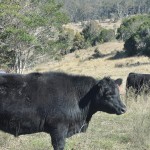
May 29, 2020
With winter around the corner, the State Government is urging horse owners to make sure their animals are vaccinated against Hendra virus.
Agriculture Minister Mark Furner said Hendra infections could occur at any time during the year, but in the past they had been more prevalent during the cooler months.
It is believed the Hendra virus is transmitted to horses via feed contaminated with fruit bat urine, faeces or saliva.
Hendra virus can spread from horse to horse and horse to human through close contact with respiratory secretions and/or blood from an infected horse.
The disease first emerged in 1994 when scientists identified a previously unknown virus after the death of horse trainer Vic Rail and 13 of his horses at Hendra in Brisbane.
Since then about 100 horses have become infected and have died or been euthanased across Australia.
There have been seven human cases with four deaths.
“Vaccination of horses is the most effective way to help manage Hendra virus disease,” Mr Furner said.
“It also provides a public health and work health and safety benefit by reducing the risk of Hendra virus transmission to humans and other susceptible animals.”
Biosecurity Queensland Chief Veterinary Officer Dr Allison Crook said the Hendra virus vaccine first became available at the end of 2012.
“Since then, there have been very few cases of Hendra virus in horses in Queensland and we want to keep it that way,” she said.
“If a horse becomes sick, owners should contact their veterinarian immediately.
“People in contact with horses need to remember to continue to practise good biosecurity and personal hygiene measures, even if a horse is vaccinated against Hendra virus.”






















